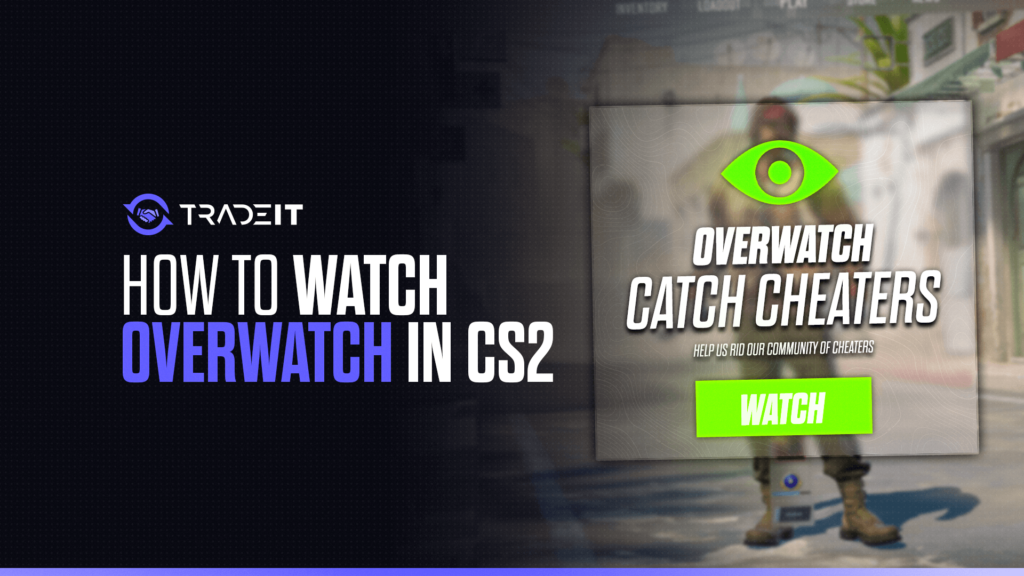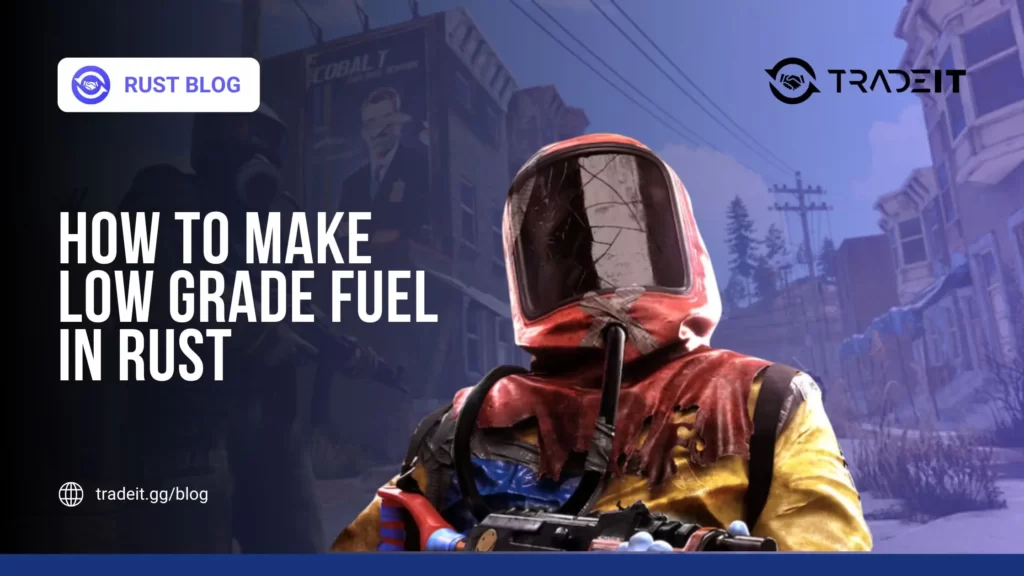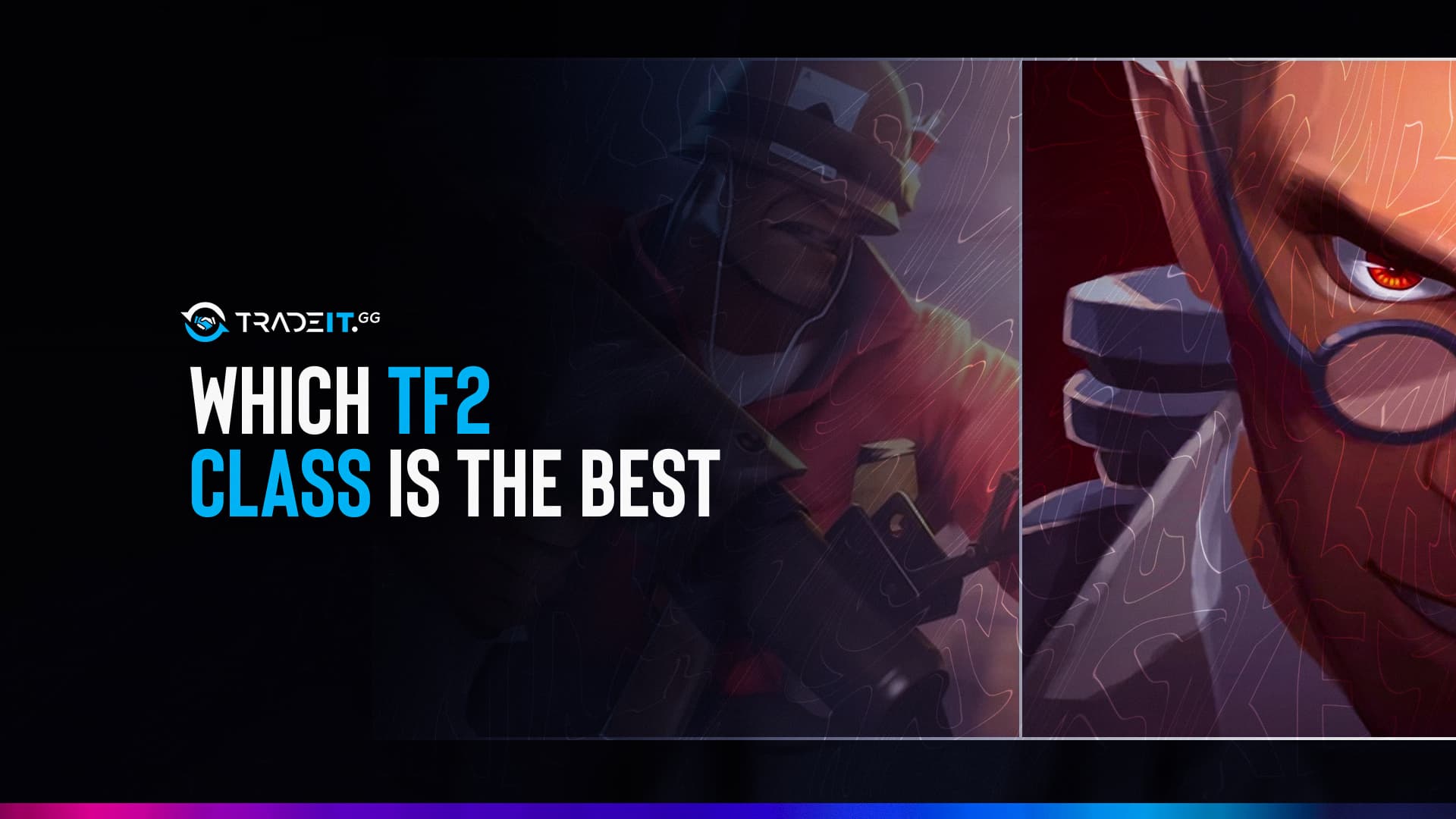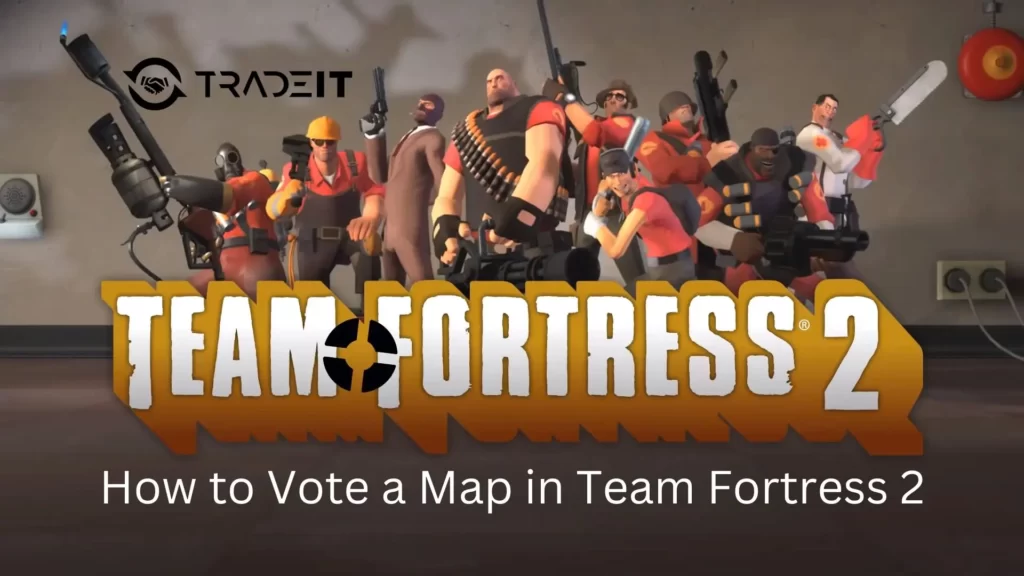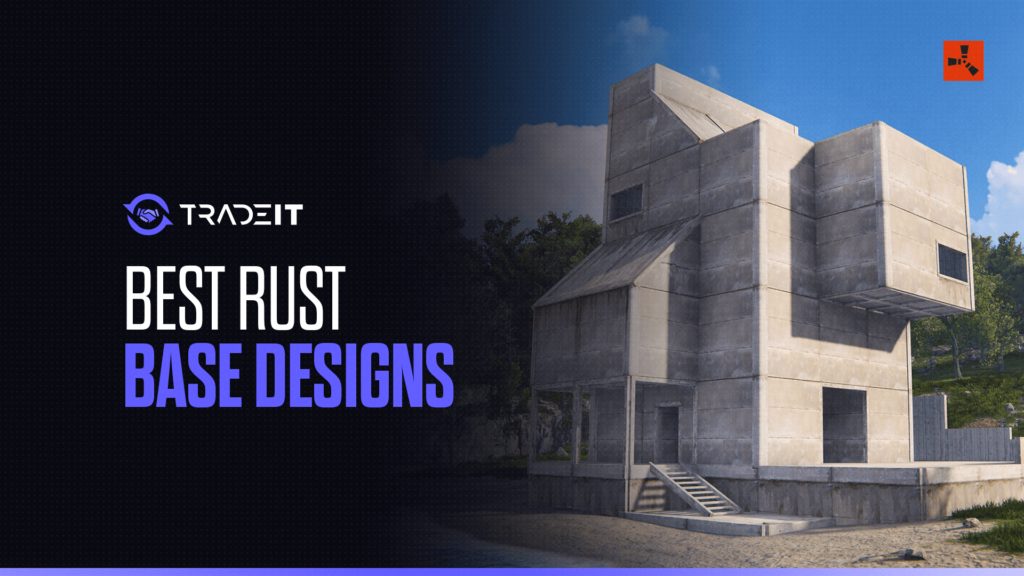Ever booted up CS2, ready to climb the ranks, only to get wrecked by a player who seems to know exactly where you’re hiding every round? Like, are they psychic or something? Maybe they haven’t discovered the wonders of instant coffee yet, but there’s a good chance they might be bending the rules a tad, and that’s where overwatch cases come into play.
There might just be a system in place, a silent guardian, a watchful protector …known as Overwatch! No, not the spandex-clad heroes, but a system that empowers YOU to be the judge, jury, and executioner (well, kinda) of cheaters. Here is how you can watch it!
Key Takeaways
- A system exists (or is in development) for trusted players to review suspicious CS2 matches and identify cheaters. This empowers the community to fight for fair play.
- While official requirements are unknown, CS:GO’s system hints at needing significant playtime (300 hours+), competitive wins (150+), a decent rank (Gold Nova 1 or higher), and a clean record (no VAC bans). Expect similar or stricter criteria for CS2. Although Valve has not provided exact details on the criteria, it’s clear that the requirements will likely be stringent.
- If chosen for Overwatch, you’ll analyze gameplay demos, wielding tools to inspect for aimbots, wallhacks, speedhacks, or griefing. Based on the evidence, you’ll deliver a verdict (convict or dismiss) to help determine the fate of potential cheaters.
What is Overwatch?

Think CSI: CS2. Overwatch lets trusted players review replays of matches on official Valve servers, looking for fishy behavior.
In the Overwatch system, investigators typically review ‘eight rounds’ of gameplay to assess for cheating behavior.
Basically, you get to be a detective, sniffing out aimbots, wallhacks, and other cheaty shenanigans. It’s a community-powered system that helps Valve maintain a fair and competitive environment for everyone.
Is Overwatch Out Yet?
The intel suggests it might still be under construction. The system just landed on April 25th, 2024, and needs time to gather evidence and, potentially, fine-tune the selection process for investigators.
How Do I Become a CS2 Overwatch Cases Investigator?
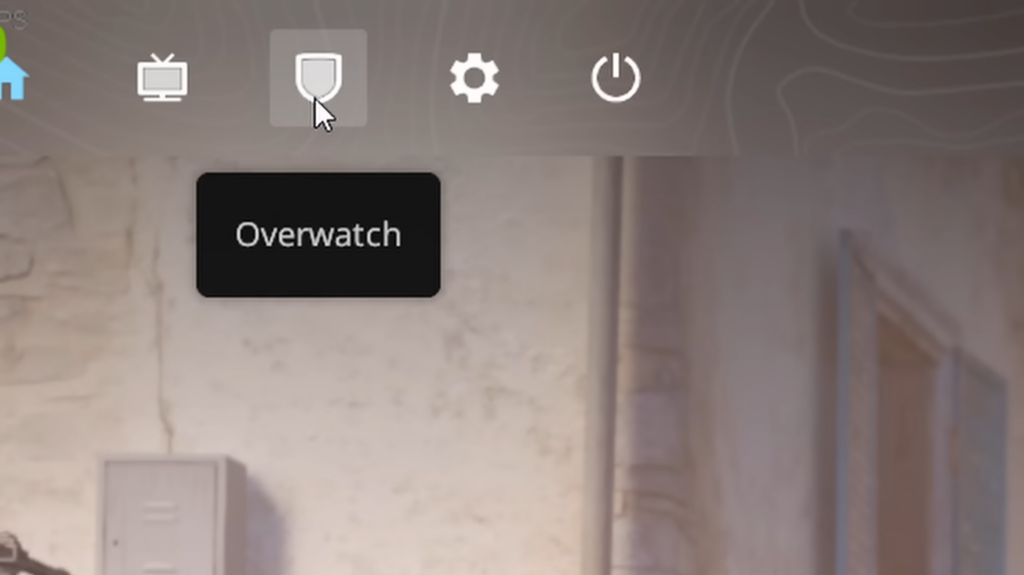
Right now, it’s a mystery shrouded in virtual smoke.
Back in CS:GO, you needed:
- Minimum playtime played: 300 hours
- Competitive experience: 150 wins
- Skill rank: Gold Nova 1 or higher (indicates game knowledge)
- Clean record: No VAC bans (ensures fair play history)
We can only guess CS2’s requirements will be similar, maybe even tougher.
This ensures that Overwatch investigators have a solid foundation in CS2 gameplay and can distinguish between genuine skill and suspicious activity. Don’t worry, if you’re chosen based on these (yet-to-be-revealed) criteria, you’ll be notified.
How Does This Work?
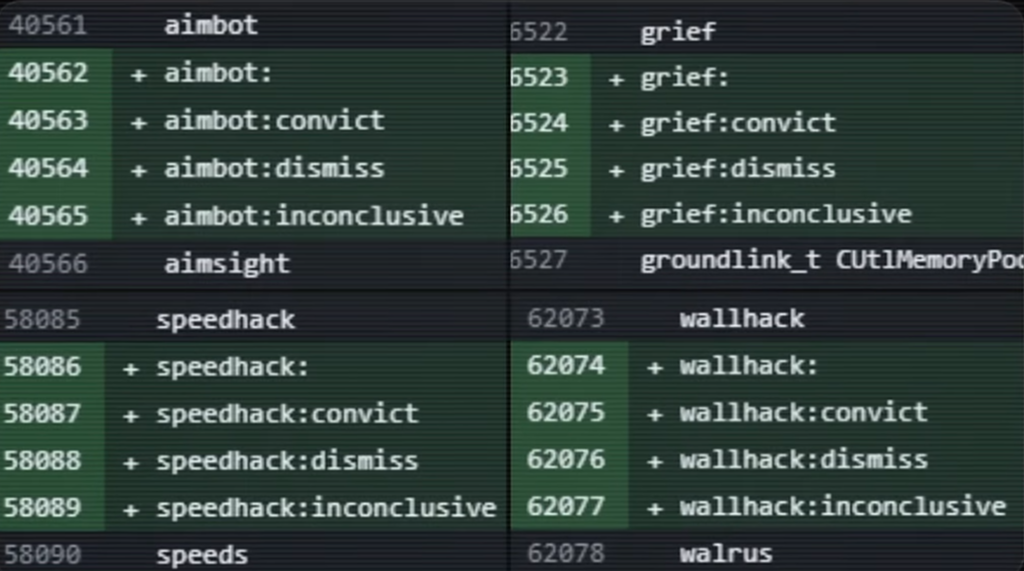
Imagine Netflix, but instead of binging shows, you’re binging suspicious CS2 demos. You’ll download the evidence, which looks like a regular demo with a twist: a “submit verdict” button at the bottom right.
The interface might even include additional tools to help you analyze the replay, such as slow motion, free-roaming camera angles, and X-ray vision (to see through walls… ethically, of course).
You Might Also Like: How to Bypass Rust Game Ban
The Verdict is Yours
Here’s where you become judge and jury. After you download and watch the demo in CS2, you’ll decide if the player is guilty (convict), innocent (dismiss), or the evidence isn’t clear enough.
Back in CS:GO, there was also an “inconclusive” option, but it seems that’s been retired, making the decision a binary one: convict or dismiss. This ensures a clearer and more decisive outcome for each case reviewed.
What Kind of Anti Cheat Measures Are We Looking For?

The usual suspects in the world of CS2 villainy:
- Aimbot: Makes your crosshair magically lock onto enemies, turning even the most average player into a headshot machine.
- Wallhack: Lets you see enemies through walls, turning corners into death traps for them and eliminating any strategic element from the game.
- Speedhack: Turns you into a caffeinated bunny, zipping around the map at hyper speed, making you nearly impossible to hit.
- Griefing: Basically ruining the game for everyone else (think blocking teammates, spamming voice chat, or intentionally throwing matches). This ensures a healthy and enjoyable experience for all legitimate players.
What’s Next?
Your verdict, along with others’ verdicts, will determine the fate of the accused cheater. If enough investigators convict them, they might get a VAC ban (Valve’s Anti-Cheat hammer). This helps keep the competitive scene clean and ensures everyone is playing by the same rules.
Summary
While you can’t actively sign up for Overwatch duty, keep playing fair and racking up those hours. Who knows, you might just get the chance to be CS2’s very own anti-cheat crusader! Remember, with great power comes great responsibility (and the satisfaction of cleaning up the game for everyone).
Frequently Asked Questions
This is a system (likely still under development) that allows trusted players to review replays of CS2 matches on official Valve servers and identify suspicious behavior like aimbots, wallhacks, or griefing.
There’s no confirmed way to sign up yet. Based on CS:GO’s system, you might need significant playtime (300+ hours), competitive wins (150+), a decent rank (Gold Nova 1 or higher), and a clean record (no VAC bans).
If chosen, you’ll download replays with suspicious activity flagged. You’ll likely have tools like slow motion, free-roaming cameras, or X-ray vision (for ethical wall checks) to analyze the evidence. Finally, you’ll submit a verdict (convict or dismiss) based on your findings.
The usual suspects: aimbots (automatic locks on enemies), wallhacks (seeing enemies through walls), speedhacks (unnatural movement speed), and griefing (intentionally ruining the game for others).
The full implementation of the Overwatch system in CS2 is still under consideration. Given the system’s complexity and the need for a robust framework to ensure fairness and accuracy, it’s difficult to pinpoint an exact timeline. However, the ongoing development and feedback from the CS:GO Overwatch system provide valuable insights that could accelerate its introduction to CS2 at some point in the future.
As of today, it’s likely still under construction. The system was recently added on April 25th, 2024, and might need time for data collection and investigator selection.


